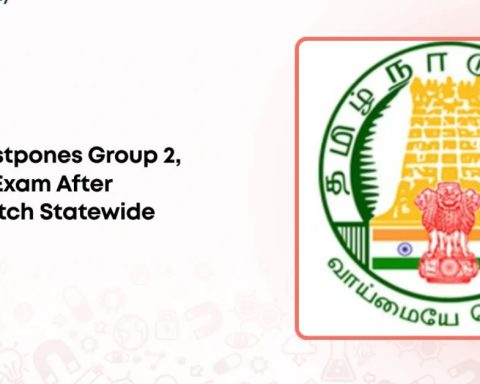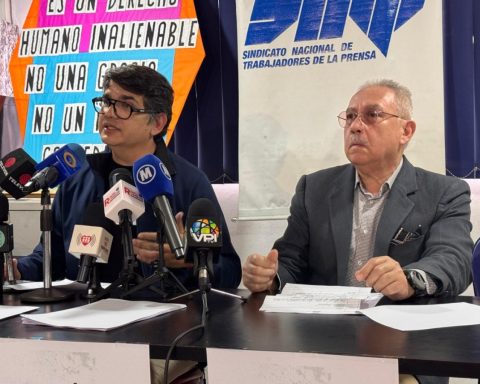December 20, 2022, 8:56 AM
December 20, 2022, 8:56 AM
The project to unite the stock exchanges of Santiago de Chile, Bogotá and Lima is still far away but it is moving towards its final phase.
The plan, still without a specific start date, is to unite the main stock markets of Chile, Colombia and Peru under a single entity, with the aspiration of building an alternative in Latin America to the predominant Brazilian and Mexican markets.
The president of the Chilean Stock Exchange, Juan Andrés Camús, said last February that “the integration of these three stock markets is a milestone in the history of the Latin American stock market.”
The stock exchanges estimate that their alliance would position them as the second most relevant market in Latin America.
Camús believes that the integration will bring closer the objective of “achieving greater competitiveness vis-à-vis global players” and converting the three countries involved into “an attractive pole worldwide for investors.”
The shareholders of the exchanges involved in the project gave the green light to the integration of the ownership of the exchanges and their subsidiaries, and of their trading, clearing and settlement platforms.
And not even the recent political crisis in Peru affects the plan at the moment.
On December 7, the former president of Peru, Pedro Castillo, was removed from office and arrested after announcing the dissolution of Parliament – a decision considered by different political sectors as an attempted coup – but the Peruvian economy has maintained its path despite all.
In the midst of a deep political crisis, the country’s currency, stock market and bonds have not collapsed, in a country that has had six presidents in just four years.
Everything seems to indicate, say analysts, that despite all the political turmoil, the economy is resisting beyond what happens in the upper echelons of power.
What is known about the plan
Experts consulted by BBC Mundo estimate that if the unification of the Santiago, Bogotá and Lima stock markets is completed, the resulting market could compete with the Mexican and would be closer to the Brazilian, although it is much larger.
But previous similar initiatives did not give the desired result and the experts also indicate that this new attempt will have to overcome many obstacles.
According to a joint statement released by the Chilean, Colombian and Peruvian stock exchanges, the three began working on the project three years ago.
The stock exchanges are private entities that must obey the decisions and interests of their shareholders, frequently banks, commission agents and independent firms.
Although there is still no date for the start of operations in the new market, the approval of those of the Lima Stock Exchange was the only one that was missing from the shareholders of the three countries and it was obtained last February.
According to the information provided by the stock exchanges, the shareholding of the new entity will be distributed 40% by the Santiago Stock Exchange, another 40% by the Bogotá Stock Exchange and 20% by the Lima Stock Exchange, the least important and largest of the three.
The holding will be based in Santiago de Chile, recognized by specialists as the most relevant market of the three involved.
“Chile has a market that works better, mainly because of the role played in it by the AFPs (Pension Fund Administrators), which are more regulated,” Peruvian stock market expert Pablo Secada told BBC Mundo.
Jaime Humberto López, from the Association of Stock Brokers of Colombia, believes that “the decision to locate the headquarters in the Chilean capital gives an idea of where the leadership will be, although the decisions must be made by consensus.”
BBC Mundo requested comments several times from those responsible for the exchanges involved, but received no response.
Why it could be a good business
The union of the markets would make it possible to gain size and liquidity to markets that by themselves cannot compete on the global scene, precisely because of their lack of depth.
“International investors tend to fear for the liquidity of the products. When they buy any title they want to be able to get out of it when the time comes without being affected by the price. And for that they need the market to be deep, that there are many buyers. By joining now buyers from three countries, these markets are going to have more liquidity, more depth,” explains López.

The lack of depth had been a problem, especially in Peru. “Peruvian companies do not usually issue shares listed on the stock market, so there have been few relevant private equity transactions in recent years,” says Secada.
For him, a large part of the problem has to do with the mentality of those responsible for Peruvian companies. “Most of them own inherited family fortunes and are afraid of losing control, so they don’t like to work with the capital markets.”
Doing so would expose them to the risk of majority investors emerging to displace control of their companies.
These and other reasons lead experts such as Alberto Ramos, a Goldman Sachs analyst for Latin America, to conclude that integration “is a very welcome initiative, since we are talking about relatively small economies with small stock markets” and it can help them to ” create a larger market that attracts more investors.
An unpromising precedent
This will not be the first attempt to move towards South American economic integration.
Already in 2010, within the framework of the Pacific Alliance signed by Mexico, Chile, Colombia and Peru, the so-called Integrated Latin American Market (MILA) was created.
It was an attempt at stock market integration in which Mexico also took part.
But the results were not as desired.
“MILA had some drawbacks, mainly operational. It was very impractical, because it required having a commission agent and sponsor in each country, and people preferred to go directly to the country in which to invest. Although there are sporadic operations, it never reached the expected volume” says Lopez.
The promoters of the new project say they have studied the experience of MILA to extract the appropriate lessons.
However, experts warn of other obstacles on the horizon.
“Each country has its own tax conditions, its own currencies, sometimes exposed to a gigantic devaluation and high volatility. That prevented MILA from giving security and certainty and that is what will have to be corrected now,” says López.
The different exchange rate in each country seems something difficult to solve.
On the other hand, there are the demands of the regulatory entities of the three countries, although the main stumbling block is the fiscal one.
“There may be homogeneity in the conditions imposed by the superintendencies, but changing the tax model is more difficult because for that you have to involve governments and congresses. And the difference in taxes paid in one country and another can alter the investors’ decisions,” explains López.
The analyst sees it as an encouraging sign that this time the promoters of Latin American stock market integration have chosen to go step by step and gradually.
Remember that you can receive notifications from BBC News World. Download the new version of our app and activate them so you don’t miss out on our best content.


















